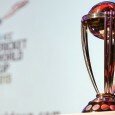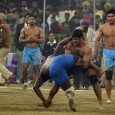By Haseeb Asif –
The 2014 World Cup in Brazil broke viewership records in twenty countries, including the United States. It also broke the hearts of millions of Brazilians as Germany steamrollered the host nation 7-1 in the semi-finals. It was a shocking result for the world, the second half of the game was one of the most tweeted about events of our times, a social media heat map showed declarations of disbelief pouring in from all corners of the globe.
Germany went on to win the entire thing. It made sense, they were pre-tournament favourites, their golden generation of players was in their prime, they played the best football, they scored the most goals, they humiliated the hosts and 5 time winners; they got a tougher match than they might’ve expected in the final though.
Argentina conspired to stop them, a very cautious and unusually defensive minded Argentina, spearheaded by one of the greatest players to have played the game, Lionel Messi, but relying just as much on defending deep and in numbers; maintaining discipline and not conceding goals to get past their opponents.
They defeated the Dutch in the other semi-final, a muted affair without goals that was decided on penalties. Many people around the world expressed sympathy with Argentina’s cause, mainly because many people around the world felt like Messi deserved a World Cup trophy for the sublime quality of player he was, for his legacy.
The Germans obviously never got the memo. They took their time in the final, and they gave Argentina glimpses of hope too with some uncharacteristic mistakes, but the South Americans failed to capitalize on them. The winning goal came in extra time, Mario Goetze, another of the young players that rose from their successful youth national team to be a hit for both club and country.
That’s all it took in the end. A low cross from the left, a calm chest control and a brilliant finish. The net bulged and Germany was sent into raptures. The German Vice-Chancellor Angela Merkel was there for the celebrations of course, deciding to postpone a meeting with Narendra Modi, of all people, drawing a fair few chuckles from Pakistan anyway.
A month on, people are still dissecting what happened to the myth of Brazil, to the beautiful game, to Jogo Bonito. Perhaps it’s been gone for a while and it was mere nostalgia keeping expectations alive. It was expected in 2006 but later deemed that the squad was unbalanced. It was expected in 2010 but later deemed that European cynicism thwarted it. It was expected in 2014, and the expectation was finally put in the grave.
Now Brazil look to one of their most unglamorous heroes, Dunga, he was nicknamed for his short and unflattering appearance. Can they recover from the trauma of 2014? Only time will tell. The domestic game is rife with dubious agents selling off young footballers to shady and oil rich clubs all over the world. There is much that needs fixing.
Still, nobody can deny that despite its political and economic problems, despite internal resistance to the extravagant football event, Brazil was an immaculate host. You have to go as far back as 1998 to find a tournament as popular and eventful as this. The Americans, the Colombians, the Belgians, the Algerians, the Costa Ricans; all went home (relatively) happy.
It was truly the World’s Cup.































































































